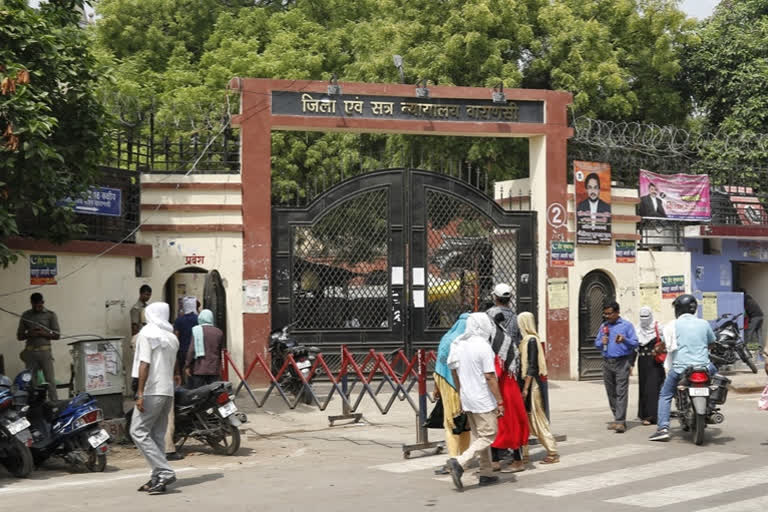Varanasi (UP): The Varanasi Court today decided to hear on May 26, the Order 7 Rule 11 CPC application filed by the defendants (including the Anjuman Islamia committee) questioning the maintainability of the suit filed by five Hindu women (plaintiffs). The Court has also invited objections from both parties to the Commission Report. The objections will have to be filed within 7 days.
The hearing on the Muslim side's plea under Order 7 Rule 11 CPC regarding the rejection of the suit will take place on May 26th. Court asked both sides to file an objection to the commission report, and submit the report within one week, says the Hindu side's Advocate Vishu Jain.
While hearing the case on Monday, the Court had reserved its order on the limited question as to whether it should decide on the application filed by the Anjuman Committee first or to take into account the commission survey report (of the Mosque premises) and invite objections to it. Following this, the District and Sessions Judge Dr Ajay Kumar Vishwesha had reserved the order after hearing the Counsels for the plaintiffs and respondents including the Anjuman Masjid Committee.
The hearing began in Varanasi court after the Supreme Court had said that it would not interfere with the Gyanvapi mosque survey and transferred the case to the lower court while noting the "complexities and sensitivities involved in the matter" would require a "more senior and experienced hand".
Also Read: 'Aurangzeb didn't order creation of waqf, Gyanvapi not a mosque': Hindu party in SC
The bench said the District Judge should decide the maintainability of the civil suit in the case on priority as sought by the Committee of Management Anjuman Islamia committee Varanasi.
After the survey of the Gyanvapi Mosque complex in Varanasi concluded, lawyers representing Hindu petitioners claimed that a Shivling was found in the Gyanvapi mosque-Shringar Gauri complex. The claim was disputed by the mosque committee members who said it was part of the water fountain in the ablution area.
On May 16, the Varanasi court ordered the sealing of part of the mosque. The Supreme Court ordered the Varanasi district magistrate to ensure the area where a shivling was purportedly found is protected without obstructing the Muslim community's right to worship.
The Court had appointed an official and a team of lawyers to conduct an inspection at Gyanvapi Masjid in Varanasi in connection with a plea seeking access to a Hindu temple behind it. A lawyer had also filed an intervention application in the Supreme Court seeking impleadment in the Gyanvapi mosque case stating that a mosque constructed on temple land cannot be a mosque.
The application was filed by advocate Ashwini Upadhyay who had earlier filed a petition challenging the Constitutional validity of the Places of Worship (Special Provisions) Act, 1991 (Act). Five Hindu women have sought round-the-year access to pray at 'a shrine behind the western wall of the mosque complex'. The site is currently made open for Hindu prayers once a year.



